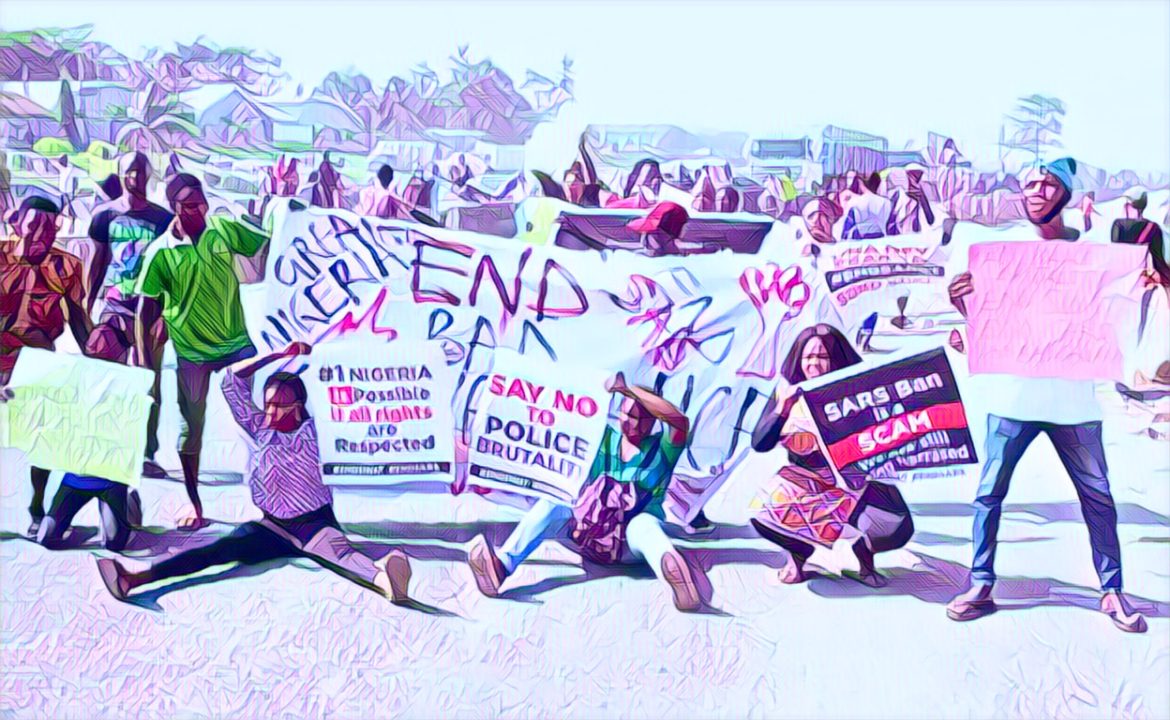In October 2020, Nigeria witnessed an unprecedented mobilization of its youth in a nationwide protest against the Special Anti-Robbery Squad (SARS), a police unit infamous for its brutality, extrajudicial killings, and human rights abuses. This movement, known as EndSARS, not only called for the disbandment of the unit but also ignited a broader demand for governmental accountability and reform. This article delves into the genesis, escalation, and aftermath of the EndSARS protests, highlighting the indomitable spirit of the Nigerian youth and the ongoing struggle for justice.
The Genesis of #EndSARS
The #EndSARS campaign initially emerged in 2017 as a response to widespread reports of human rights abuses by the SARS unit. Utilizing social media, young Nigerians shared harrowing stories and evidence of SARS’s brutality, with the hashtag #EndSARS rapidly gaining traction. This digital campaign soon translated into physical mass protests across Nigeria’s major cities in October 2020, marking a pivotal moment in the nation’s call for justice and accountability.
Escalation and the Lekki Toll Gate Shooting
The peaceful protests took a tragic turn on October 20, 2020, at the Lekki Toll Gate in Lagos, where armed forces opened fire on unarmed demonstrators, resulting in numerous casualties. This incident, vehemently condemned both locally and internationally, underscored the government’s harsh response to the protests and ignited further outrage, leading to a global show of solidarity with the Nigerian protesters.
Government Response and Public Backlash
In the face of mounting pressure, the Nigerian government announced the disbandment of SARS on October 11, 2020. However, skepticism remained high among the populace, fueled by past unfulfilled promises of police reform and the immediate proposal to reassign SARS officers rather than implementing comprehensive policing reforms. The continued protests reflected a deep-seated distrust in government assurances and a demand for tangible change.
The Aftermath and Calls for Accountability
The aftermath of the EndSARS protests has been a period of reflection and reckoning. Despite the government’s efforts to quell the unrest through measures such as freezing the bank accounts of protest organizers and imposing fines on media outlets, the call for accountability and justice for victims of police brutality remains loud and clear. Various states in Nigeria have set up judicial panels to investigate abuses by SARS, but progress has been slow, and many Nigerians remain skeptical of the government’s commitment to genuine reform.
The Role of the International Community
The EndSARS movement garnered significant international attention, with diaspora protests and global leaders expressing support for the Nigerian youth’s demands. This international solidarity highlighted the global concern over human rights abuses in Nigeria and the importance of global advocacy in the fight against impunity.
The Resilience of the “Soro Soke” Generation
The protests have showcased the determination and resilience of the Nigerian youth, dubbed the “Soro Soke” (Speak Up) generation. This movement has not only called for an end to police brutality but has also sparked a broader conversation on governance, corruption, and the need for systemic reform in Nigeria.
Conclusion: A Continuing Struggle for Justice
The EndSARS movement, while marking a significant moment in Nigeria’s history, represents just the beginning of a long journey towards achieving justice and meaningful reform. The Nigerian government’s response to the protests, and the subsequent actions taken towards police reform and accountability, will be critical in determining the future of governance and human rights in Nigeria. As the world watches, the resilience and continued activism of the Nigerian youth offer a beacon of hope for a more just and equitable society.
The struggle for justice and reform in Nigeria continues, as the voices of the “Soro Soke” generation echo the demands for an end to impunity and the dawn of a new era of accountability and governance.
Sources: The Guardian, Amnesty, BBC


